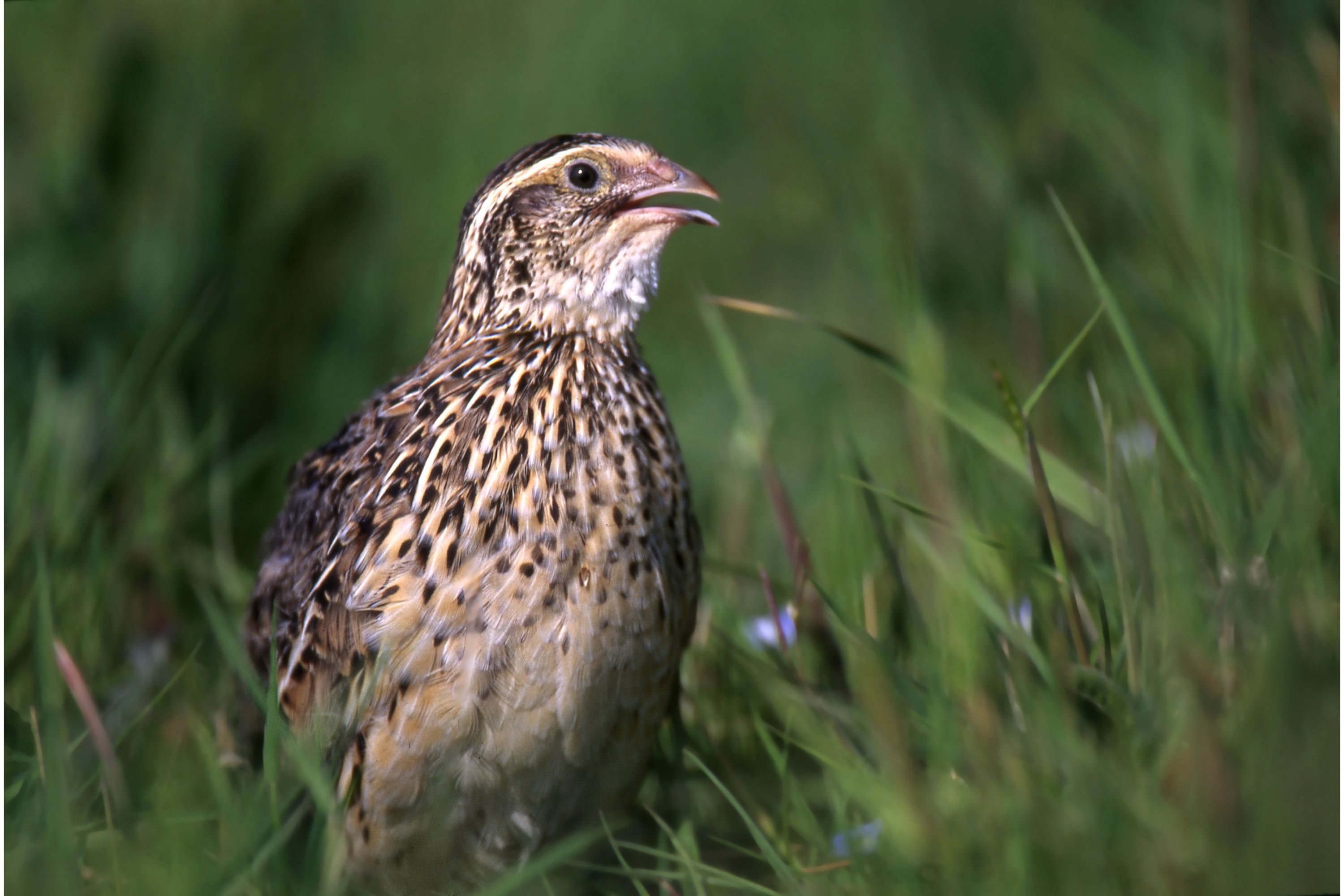Common quail
(Coturnix coturnix)

Description
The common quail (Coturnix coturnix), or European quail, is a small ground-nesting game bird in the pheasant family Phasianidae. It is mainly migratory, breeding in the western Palearctic and wintering in Africa and southern India. With its characteristic call of three repeated chirps (repeated three times in quick succession), this species of quail is more often heard than seen. It is widespread in Europe and North Africa, and is categorised by the IUCN as "least concern". It should not be confused with the Japanese quail, Coturnix japonica, native to Asia, which, although visually similar, has a call that is very distinct from that of the common quail. Like the Japanese quail, common quails are sometimes kept as poultry. The common quail is a small compact gallinaceous bird 16–18 cm (6+1⁄2–7 in) in length with a wingspan of 32–35 cm (12+1⁄2–14 in). The weight is 70 to 140 g (2+1⁄2 to 5 oz). It is greatest before migration at the end of the breeding season. The female is generally slightly heavier than the male. It is streaked brown with a white eyestripe, and, in the male, a white chin. As befits its migratory nature, it has long wings, unlike the typically short-winged gamebirds. According to Online Etymology Dictionary, "small migratory game bird of the Old World, late 14c. (early 14c. as a surname, Quayle), from Old French quaille (Modern French caille), perhaps via Medieval Latin quaccula (source also of Provençal calha, Italian quaglia, Portuguese calha, Old Spanish coalla), or directly from a Germanic source (compare Dutch kwakkel, Old High German quahtala "quail," German Wachtel, Old English wihtel), imitative of the bird's cry. Or the English word might have come up indigenously from Proto-Germanic. This is a terrestrial species, feeding on seeds and insects on the ground. It is notoriously difficult to see, keeping hidden in crops, and reluctant to fly, preferring to creep away instead. Even when flushed, it keeps low and soon drops back into cover. Often the only indication of its presence is the distinctive "wet-my-lips" repetitive song of the male. The call is uttered mostly in the mornings, evenings and sometimes at night. It is a strongly migratory bird, unlike most game birds. The common quail has been introduced onto the island of Mauritius on several occasions but has failed to establish itself and is now probably extinct.
Taxonomic tree:







